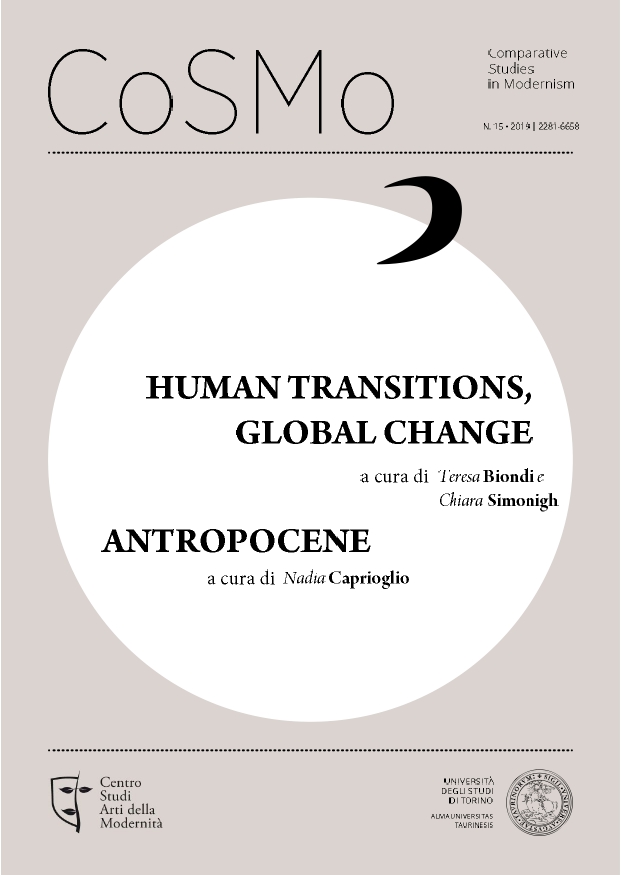Apocalisse mediale. La saturazione dei flussi nella nuova serialità televisiva
DOI:
https://doi.org/10.13135/2281-6658/4023Parole chiave:
Media Flows, Globalization, Series, Fetish, ApocalypseAbstract
The contemporary media landscape is marked by different phenomena and rapid changes that re-shape its possible fruition models: the expansion of narrative ecosystems, the complexity of serial mechanisms and the content modulation on several platforms and devices require a high level of cooperation from the spectator – continuously being asked and trained to rebuild, complete and contemplate the media universe. In this context, interactions between a medium and a spectator usually result in the reflective aestheticization of the same serial mechanism that characterises these narrative ecosystems and contributes to making these products targets of fetish worship by spectators. This issue becomes complicated if we consider the increasing overlapping between everyday life and the media, in which media contents and consumptions tend more and more to determine values and temporality of everyday life. Within the analysis of “Bandersnatch” – showing in a complex way the possible dystopian drifts of our (post)media condition – the aim of this essay is to highlight the consequences of the expansion of narrative universes: it does not result in a fragmentation or leak of elements, but rather in their convergence towards an increase of self-reference and resilience of the whole media universe. The spectator turns out to be absorbed in this integrated environment (from the product to its consumption) being not a dynamic subject anymore, but an object mirroring himself in his own daily and fetish relationship with the media. The flow of images and contents appears to be saturated as soon as the media universe expansion constitutes, covers and integrates most of the entire culture and everyday experience.Downloads
I dati di download non sono ancora disponibili.
##submission.downloads##
Pubblicato
2019-12-28
Fascicolo
Sezione
Focus | Transiti dell’umano
Licenza
Gli autori mantengono i diritti sulla loro opera e cedono alla rivista il diritto di prima pubblicazione dell'opera, contemporaneamente licenziata sotto una Licenza Creative Commons - Attribuzione che permette ad altri di condividere l'opera indicando la paternità intellettuale e la prima pubblicazione su questa rivista.







